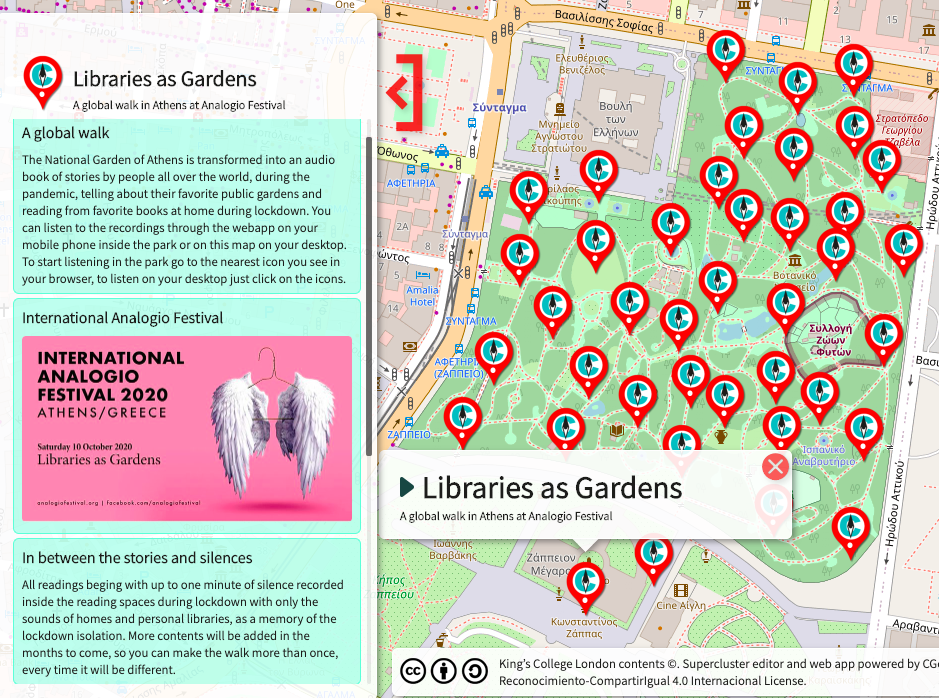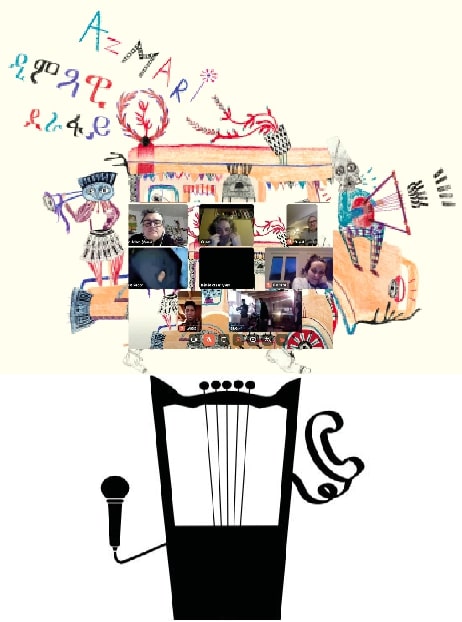Meet, discuss with, and listen to Sylvie Marchand, new technology artist and anthropologist, on her work, as yet in progress, AZMARI, a digital walking piece, filled with recordings from Habesha nomad poet musicians who fled Eritrea for France.
Sylvie Marchand’s artistic projects involve walking. They are born from the experiences of meetings with migrants and refugees from around the world. She likes to deal with unprogrammed situations; her creations are born from personal contacts.
Sylvie Marchand brings together a constellation of refugee artists, and leads a creative dialogue in the studio or in the field, such as in centres for migrants or refugee camps, with refugees from Africa, the Middle East and Asia.
In doing so, she discovered the music and texts of the Azmari, Habesha nomad poet musicians, who had fled from Eritrea, and started her latest artistic project, with collaborative creation sessions, concerts, installations, walks and sound walks, composing and re-composing collectively the texts and music of these refugees.
Located in rural areas, most of our artistic actions are nestled in nature, we walk, we cross the infinity of the universe which conceals the mystery of the living of which we are a part.
– Sylvie Marchand
Sylvia Marchand works with digital media and locative tools, such as CGeomap, creating maps and site specific media celebrating togetherness, hospitality and art as a connector of people around the world.
Her experience of walking together and creating together with refugees from Eritrea and other countries, and how this can cross-pollinate the walking arts practices of Western artists, will be the topic of her talk and dialogue with you, departing from her latest project AZMARI: Erythro’Poïesie / Listening to the “foreigner who comes”.
The glocal work of new technology artist and anthropologist Sylvie Marchand focuses on migration, nomadism and hospitality, often through sound walks and in a collaboration with migrants.
After encountering Eritrean refugees, she first started the Hospitality in Actions project where the urgency was to give back to these artists the full range of their art by manufacturing Abyssinian musical instruments (krars).
This was extended into a locative media project as a plea for the cause of refugees, for inclusion in the face of racism and as a means of shedding light on an essential part of our contemporary history, to show how much the presence of “the foreigner who comes” (Michel Agier) is a chance for all; because it is crucial to give a voice to the artists who arrive, because it is vital to listen to them, and because it is urgent to reinvent, with them, the polyphonies of the world.
Azmari’s artistic material is the fruit of exchanges over a period of three years, whether or not they have migrated, united by the desire to reinvent the territories of art and the languages of humanity. Together these artists calligraphy the earth, drawing a network of energies, desires, skills and visions that unite us beyond borders.
Within the project, along multilingual sound walks, people on the go will be listening to poems, stories, testimonies and sung oral literature created from the poetry of the world.
This event will be moderated by Geert Vermeire.
|
Café recording Only available to registered users. |
Related

Libraries as Gardens – sound walk in Athens
The National Garden of Athens is transformed into an audio book of stories by people all over the world, during the pandemic, telling about their favorite public gardens and reading from their favorite books at home during lockdown. You can listen to the recordings while walking inside the National Garden of Athens through a webapp



